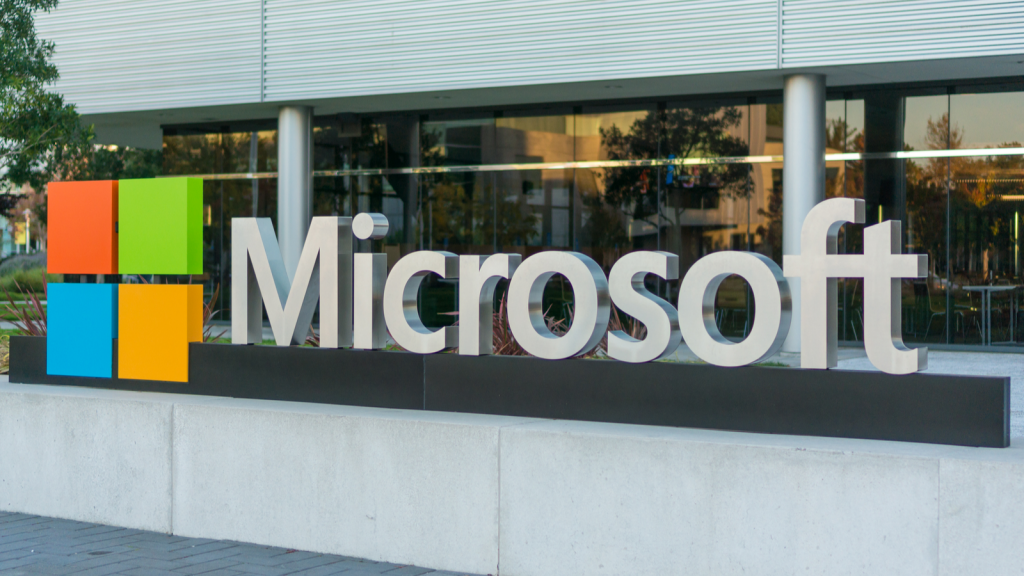Last Monday, a landmark U.S. trial against Alphabet’s Google (NASDAQ:GOOG, NASDAQ:GOOGL) began, and the case represents one of the first antitrust cases embarked upon by the U.S. Department of Justice against a large technology company in years. What does that have to do with MSFT stock? Now, core to the Justice Department’s case is how “distribution agreements” illegally incentivized Apple (NASDAQ:AAPL) and wireless carriers to set Google as the default browser on most smartphones. Microsoft’s (NASDAQ:MSFT) CEO, Satya Nadella, was present to testify against their rival’s anti-competitive practices, and in doing so, Nadella made some interesting (or worrying) comments, some of which may cause investors to rethink their bets on artificial intelligence (AI) and Microsoft as a whole.
MSFT Stock: ChatGPT Is Unlikely to Increase Microsoft’s Market Share in Search
When OpenAI released ChatGPT earlier this year, a lot of market spectators, investors, and ordinary people marveled at the technology, while others wondered if Microsoft’s billion-dollar investment in the startup was finally paying off. The computer software giant had initially invested $1 billion in OpenAI back in 2019, but its cumulative investment has swelled beyond $13 billion. There was also a lot of hope that ChatGPT would change the growth prospects for Microsoft’s Bing browser.
Unfortunately, during last week’s testimony, Satya Nadella proved that even the AI-powered ChatGPT has not been able to help Microsoft meaningfully break into the search browser market. When commenting about Bing’s app store downloads since the browser inculcated ChatGPT functionality, he said, “Even the app store downloads are interesting but not … something you write home about.” He also denied artificial intelligence was leading to “dramatic shifts” in Microsoft’s market share.
Microsoft Has Spent Billions on Its Search Engine Without Any Clear Returns
Google’s search engine remains undeniably dominant, with over 80% of the search market. This is despite Microsoft having already poured billions into its Bing search engine. Even when Microsoft attempted to become the default search engine on select Verizon phones in 2008 and BlackBerry phones in 2011, end-users eventually bypassed Bing. They completed the majority of their searches on Google. Similarly, on laptops, most of which use Microsoft operating systems, Bing is the default search engine, yet its market share is below 20%. Microsoft even considered paying $40 billion for Yahoo to gain an upper hand in the search engine market.
Microsoft’s strategy here might not be very evident, but what is clear is the billions Microsoft has spent on its proprietary search engine have not fully paid off. Given the sheer dominance of Google, it is difficult to predict if all of this spent capital will ever create any real returns for the computer software giant or its shareholders.
A Negative Trial Outcome for Google Will Likely Not Spur Bing’s User Growth
A negative trial outcome for Google will not automatically funnel a ton of users to Microsoft Bing. First, it is unclear what a ruling against Google could entail. Fines? Perhaps, but even that will not likely hurt Google’s search market share in the long run. Judge Amit Mehta, who presides over the trial case, asked Nadella why Apple would switch to Bing given the lower quality of the Microsoft product. Although the judge’s statement is clearly taking Google’s standpoint on the overall legal matter, Mehta’s negative perception of Bing’s product quality is not out of the norm.
While both Microsoft Bing and Google Search are likely to please all kinds of users regarding functionality and search results, the perception that Bing is inferior to Google is still pervasive. Put slightly differently, even if Google is forced to stop incentivizing Apple and wireless carriers to set Google as the default browser, these companies are likely to continue to do so unless basic consumer preferences change. That will create an arduous, uphill battle for Microsoft’s Bing in the long term.
On the date of publication, Tyrik Torres did not have (either directly or indirectly) any positions in the securities mentioned in this article. The opinions expressed in this article are those of the writer, subject to the InvestorPlace.com Publishing Guidelines.
